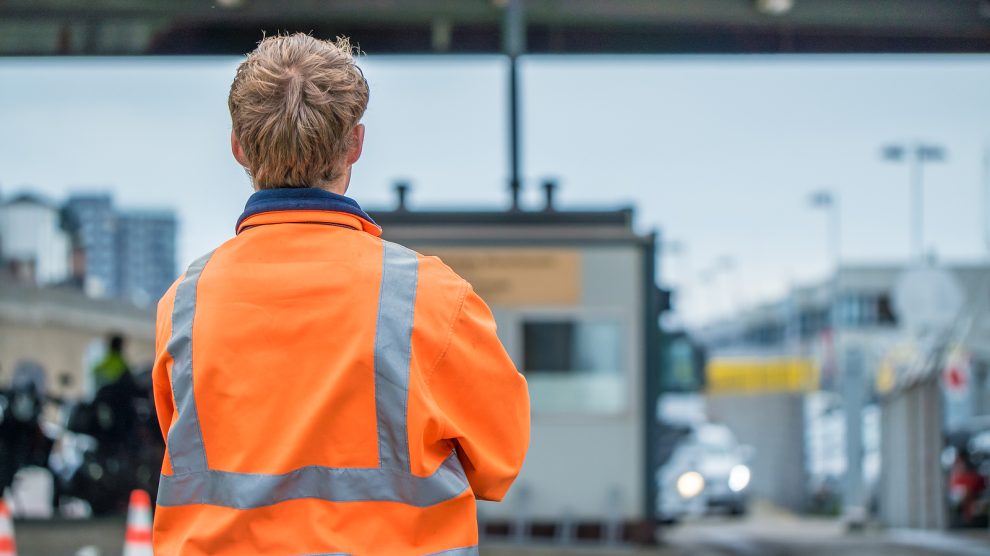Albania and the United Kingdom are NATO allies, but relations have grown tense over the last year as the number of Albanians seeking asylum in Britain surged.
While Albania works to increase its image on social media to boost tourism, later in June the United Kingdom Home Office will launch an ad campaign on social media in Albania with a very different message: stay away.
The ads on Facebook and Instagram, which are similar to those run by the UK government in August of last year, will warn Albanians that they face detention and deportation if they make it to Britain.
- Economy in focus: Albania
- The changing face of Tirana
- Greek villages and hidden submarines: Postcards from the Albanian Riviera
The UK Home Office calls Albania a “safe and prosperous country” and accuses many of its nationals of making “spurious asylum claims when they arrive” in Britain.
In 2022, more Albanians crossed the English Channel than any other nationality, with the 12,301 accounting for 28 per cent of total small boat arrivals to the UK. UK Prime Minister Rishi Sunak has made ‘stopping small boats’ one of his five top objectives and presented a plan in March to effectively ban individuals who arrive in the UK via small boats from claiming asylum and limits ways to challenge UK asylum decisions.
However, in late April, the Equalities and Human Rights Commission—the UK’s official human rights watchdog—warned the proposal likely violates international human rights law.
‘Disgraceful’ demonisation
Suella Braverman, the Home Secretary in the Conservative government, has used the crisis to try to score political points, saying, “If Labour were in charge they would be allowing all the Albanian criminals to come to this country, they would be allowing all the small boats to come to the UK, they would open our borders and totally undermine the trust of the British people in controlling our sovereignty.”
Albanian Prime Minister Edi Rama has condemned her comments as “disgraceful” and a “low point”.
“What has been [said] by members of the cabinet, starting with the home secretary, [is] the singling out of our community, which is not something you do in our civilisation, and is something that does not represent Britain at all,” said Rama. “We will always refuse to have this mix between some criminals and the Albanians as such because giving to the crime an ethnic seal is itself a crime.”
“They are in such a bad place, the poor Brits, that they have to go after Albanians to feel like they still have muscle,” he said.
As xenophobia against Albanians reaches an all-time high, many British-Albanians have taken to social media to share their stories.
Krissy Cela, a co-founder at Oner Active and EvolveYou, wrote, “At a young age my family and I immigrated to the UK, and whilst I now speak English, hold a British Passport and have lived in the UK for over 20 years, in my heart, I will always be that five-year-old little refugee girl immigrating in a small boat and lorry from Albania.”

Increasing cooperation on deportations
The UK has increased deportation flights to Albania since the two countries signed a cooperation agreement in December to “deter and disrupt illegal migration”. Over 1,000 people have been flown back to Tirana since then—half voluntarily and the rest as failed asylum seekers or criminal offenders.
According to BBC reporting, some offenders were offered money for agreeing to deportation and were released from prison before serving their minimum sentence.
Despite the exchange of harsh words between government officials from the UK and Albania, on May 24, the two governments built on the December agreement with a new plan to “see hundreds of Albanian prisoners returned to their home country in exchange for UK support to help modernise the Albanian prison system.”
Even as the Albanian economy performs well in comparison to peer European economies in the face of heightened inflation, salaries and working conditions remain comparatively low.
As Albanians continue to emigrate in search of better lives, cooperation on deportation and prison logistics without meaningful economic investment will not address a key root cause of the crisis.
Unlike many news and information platforms, Emerging Europe is free to read, and always will be. There is no paywall here. We are independent, not affiliated with nor representing any political party or business organisation. We want the very best for emerging Europe, nothing more, nothing less. Your support will help us continue to spread the word about this amazing region.
You can contribute here. Thank you.







Add Comment